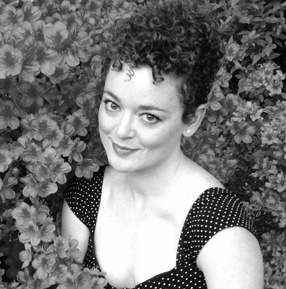River was my first word
after mama.
I grew up with the names of rivers
on my tongue: the Coosa,
the Tallapoosa, the Black Warrior;
the sound of their names
as native to me as my own.
I walked barefoot along the brow of Lookout Mountain
with my father, where the Little River
carves its name through the canyons
of sandstone and shale
above Shinbone Valley;
where the Cherokee
stood on these same stones
and cast their voices into the canyon below.
You are here, a red arrow
on the atlas tells me
at the edge of the bluff
where young fools have carved their initials
into giant oaks
and spray painted their names and dates
on the canyon rocks,
where human history is no more
than a layer of stardust, thin
as the fingernail of god.
What the canyon holds in its hands:
an old language spoken into the pines
and carried downstream
on wind and time, vanishing
like footprints in ash.
The mountain holds their sorrow
in the marrow of its bones.
The body remembers
the scars of massacres,
how the hawk ached to see
family after family
dragged by the roots
from the land of their fathers.
Someone survived to remember
beyond the weight of wagons and their thousands
of feet cutting a deep trail of grief.
Someone survived to tell the story of this
sorrow and where they left their homes
and how the trees wept to see them go
and where they crossed the river
and where they whispered a prayer into their grandmother’s eyes
before she died
and where it was along the road they buried her
and where the oak stood whose roots
grew around her bones
and where it was that the wild persimmons grow
and what it was she last said to her children
and which child was to keep her memory alive
and which child was to keep the language alive
and weave the stories of this journey into song
and when were the seasons of singing
and what were the stories that go with the seasons
that tell how to work and when to pray
that tell when to dance and who made the day.
You are here
where bloodlines and rivers
are woven together.
I followed the river until I forgot my name
and came here to the mouth of the canyon
to swim in the rain and remember
this, the most indigenous joy I know:
to wade into the river naked
among the moss and stones,
to drink water from my hands
and be alive in the river, the river saying,
You are here,
a daughter of stardust and time.
Copyright © 2016 by Ansel Elkins. Originally published in Poem-a-Day on October 26, 2016, this poem was commissioned by the Academy of American Poets and funded by a National Endowment for the Arts Imagine Your Parks grant.
“My father took me to Little River Canyon in northeastern Alabama one summer when I was in high school, after I’d begged him to take me to see a real, wild river because I was sick of lakes, dammed rivers, and domesticated bodies of water. This summer, I returned with my husband to the Little River, and I saw so many different people of different ethnicities swimming in the river together. While in the river, I thought of the thousands of Cherokee who’d lived here for generations before, who were killed and brutally uprooted by Anglo Americans in what became known as the Trail of Tears.”
—Ansel Elkins

